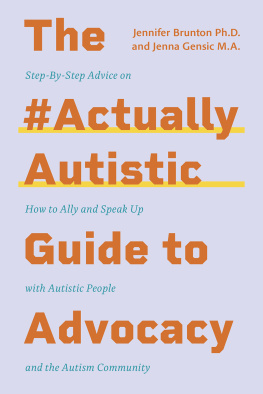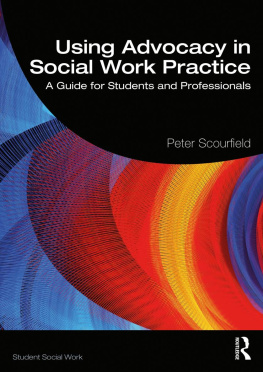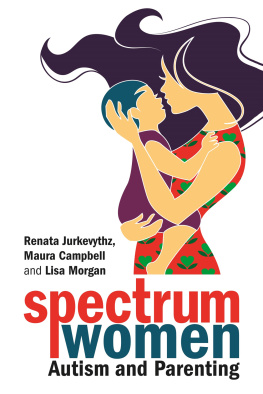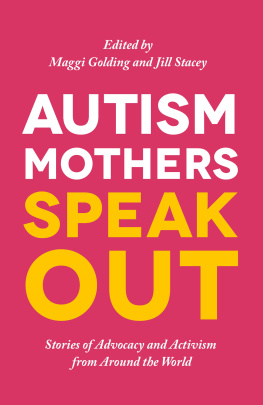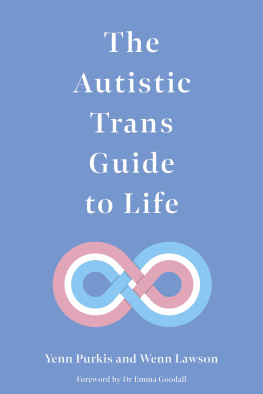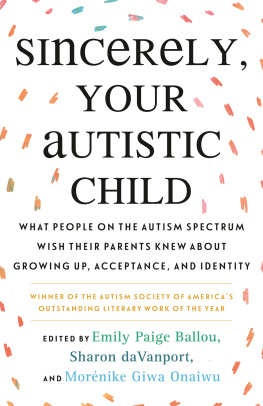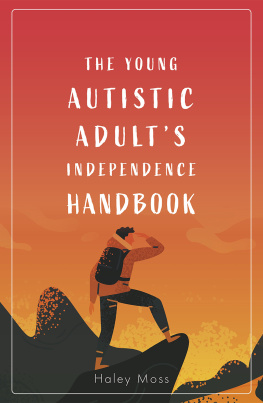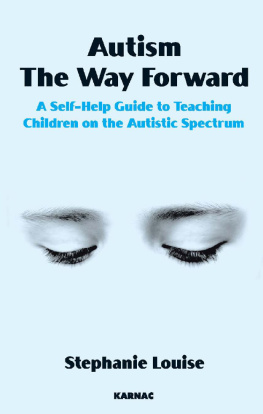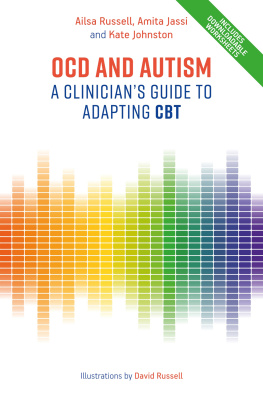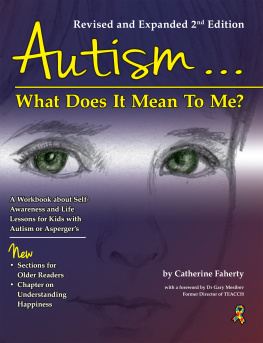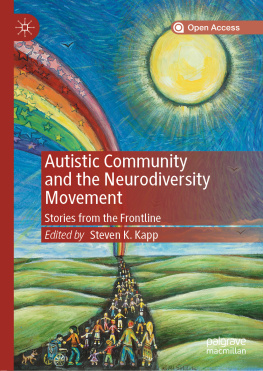Contents
Page list

of related interest
Shake It Up!
How to Be Young, Autistic and Make an Impact
Quincy Hansen
ISBN 978 1 78775 979 4
eISBN 978 1 78775 980 0
The Autism and Neurodiversity Self Advocacy Handbook
Developing the Skills to Determine Your Own Future
Barb Cook and Yenn Purkis
ISBN 978 1 78775 575 8
eISBN 978 1 78775 576 5
Spectrum Women
Walking to the Beat of Autism
Edited by Barb Cook and Dr Michelle Garnett
Foreword by Lisa Morgan
ISBN 978 1 78592 434 7
eISBN 978 1 78450 806 7
The #ActuallyAutistic
Guide to Advocacy
Step-by-Step Advice on How to Ally
and Speak up with Autistic People
and the Autism Community
Jennifer Brunton, Ph.D.
and Jenna Gensic, M.A.

First published in Great Britain in 2021 by Jessica Kingsley Publishers
An Hachette Company
Copyright Jennifer Brunton and Jenna Gensic 2022
The right of Jennifer Brunton and Jenna Gensic to be identified as the Authors of the Work has been asserted by them in accordance with the Copyright, Designs and Patents Act 1988.
All rights reserved. No part of this publication may be reproduced, stored in a retrieval system, or transmitted, in any form or by any means without the prior written permission of the publisher, nor be otherwise circulated in any form of binding or cover other than that in which it is published and without a similar condition being imposed on the subsequent purchaser.
A CIP catalogue record for this title is available from the British Library and the Library of Congress
ISBN 978 1 78775 973 2
eISBN 978 1 78775 974 9
Jessica Kingsley Publishers policy is to use papers that are natural, renewable and recyclable products and made from wood grown in sustainable forests. The logging and manufacturing processes are expected to conform to the environmental regulations of the country of origin.
Jessica Kingsley Publishers
Carmelite House
50 Victoria Embankment
London EC4Y 0DZ
www.jkp.com
To neurodivergent people everywhere and our beloved,
proudly neurodiverse families. As our world evolves,
may your perspectives increasingly be honored.
Contents
Introduction
When Shannon Hughes enlisted the assistance of an autism employment expert to help her find a job, she was hopeful this professional would offer useful advice for obtaining meaningful employment. After experiencing chronic invalidation at work and enduring the exhaustion of using all her physical, mental, and emotional resources to function in a neurotypical (NT) environment, Hughes had nothing left over for relationships or developing any kind of support network.
During one of her sessions with the employment expert, they were approached by one of the experts colleagues. Assuming Hughes needed help introducing herself to other adults, the expert spoke to Hughes as if she was a shy first grader, asking if she was willing to introduce herself to the man who had approached them. Hughes was immediately offended. I have decades of experience in interacting with people in a professional environment, introducing myself, and promoting myself professionally, she explains. She says her social skills are well-rehearsed and better than those of many NT people, although they are exhausting for her to practice. Hughes explains that if she was around two people who didnt know each other, she would introduce both of them instead of asking only one person to introduce themselves.
But Hughes didnt want to be rude, so she introduced herself, and the colleague left. Then the employment expert thanked her in the most patronizing tone for allowing her to challenge Hughes. Hughes says, I wanted very much to challenge her with a lesson on what social behavior she was practicing, which was downright insulting to someone with autism, but it had already been a long day, and I wanted to go home.
During her time working at a disability resource center in Missouri, Hughes realized that everyone, no matter how well informed they are, makes mistakes about what disabled people are capable of. Even in that presumably inclusive context, she witnessed medical professionals who work every day with people on the spectrum making incorrect assumptions about competence. Its important not to make assumptions, and to treat people with disabilities with the same respect and consideration as you would anyone, unless you have concrete knowledge that they need anything else from you, Hughes notes.
Hughes story is one example of the importance of presuming competence for people on the spectrum. But the employment experts mistake is not an isolated incident. Like most neurodivergent (ND) people, this books co-author, Jennifer, remembers numerous similar incidents throughout her own life, as well as her Autistic sons childhood: the time a neighbor congratulated her on her sons normal interaction, teachers and special educators assuming he needed modifications instead of accommodations, and so on.
The point is, like all human beings, every Autistic child or adult has their own strengths and weaknesses. Yet most Autistic people regularly encounter generalized assumptions around their competence and capacities long before they reach adulthood. When well-meaning parents and family members, care providers, friends, partners, and schools lack a holistic awareness of neurodiversity, they may treat children, teens, and young adults on the spectrum in ways that can have far-ranging, long-lasting repercussions for the Autistic people in their care. Likewise, a lack of awareness on the part of the people and institutions around them has significant and ongoing negative consequences for Autistic adults.
But we can learn, grow, and do bettertogether. This book is designed to lead the reader through a series of incremental, manageable steps towards truly aware and respectful advocacy and allyship. We start with small-scale, personal-level insights, move on to families, schools, and other institutions, and gradually widen our scope to a broad societal focus. At each stage, we offer opportunities and suggestions for both proactive reflection and practical actions that are conducive to the amplification of #ActuallyAutistic viewpoints (the #ActuallyAutistic hashtag was created by the Autistic community to identify and celebrate Autistic voices and expertise as distinct from the #autism hashtag). Proceeding from the personal to the political, we propose a comprehensive, holistic, and respectful approach to autism advocacy. The book is also clearly organized by topic, so readers can easily locate those sections that feel most useful at a given time.
Jenna interviewed more than one hundred Autistic people, and nearly all of them had advice to improve autism advocacy and NT allyship. Jenna has been soliciting advice from the Autistic community since 2013 (as the mother and sibling of people on the spectrum), with a mission to connect parents, caregivers, and educators with #ActuallyAutistic voices and help Autistic people reclaim the autism narrative. Jennifers ND perspectives (both as a parent and as an individual) and extensive advocacy experience round out this rich trove of #ActuallyAutistic wisdom. In the pages that follow, youll hear from the Autistic community about the most productive and respectful ways to advocate for Autistic people.
About the authors
At this point wed like to tell you a bit more about ourselves.

